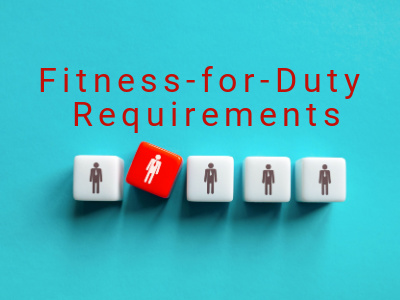Maybe you’ve experienced this: An employee has a serious health condition, you provide the required Family and Medical Leave (FMLA) paperwork, and the certification form either comes back not fully filled out or so vague that you’re unable to figure out whether a serious health condition even exists. In these circumstances, FMLA regulations spell out exactly what steps employers can take to address these shortcomings: The employer must give the employee written notice of the missing or insufficient information and an opportunity provide it.
Or maybe you’ve experienced this: You receive a complete certification form, but you have good reason to doubt its validity. For example, maybe the certification states the employee can’t perform essential functions that she has been and continues to perform. Again, in these circumstances, comprehensive FMLA regulations tell us what to do next, which is to request a second opinion (and maybe even a third).
And, perhaps, you’ve experienced this: An employee with a significant serious health condition goes out on extensive FMLA leave. Despite the significance of the issue, you receive a minimal return-to-work notification from her healthcare provider, stating only that she has been fully released to work.
Fitness-for-Duty Certification Process
The return-to-work or fitness-for-duty concept arises in a variety of contexts: FMLA, workers’ compensation, multiday absences from work due to illness (hello, flu season!), etc. In the FMLA context, this process is specifically addressed by regulations enforced by the U.S. Department of Labor (DOL). Employers must be aware of these FMLA-specific procedures.
While the FMLA allows employers to require fitness-for-duty certifications as a condition of job restoration, there are two prerequisites for the request. First, they can only be “requested by the employer pursuant to a uniformly applied policy for similarly-situated employees.” In other words, you must have a consistently applied practice or policy.
Second, the employer must indicate in the designation notice (Form WH 382) that a return-to-work certification will be required. This form is usually provided shortly after a request for FMLA leave is made or the need for leave arises.
If both requirements are met, an employer doesn’t need to return an employee to work following FMLA leave until the employee provides the fitness-for-duty certification. The employer can deny or delay job restoration until the certification is provided, and it can even fire the employee if a certification is not provided after reasonable opportunity to present it.
Generally, a fitness-for-duty certification only needs to contain a statement from the employee’s healthcare provider that she can return to work. If the employer attaches a list of essential job functions of the employee’s position to the designation notice (Form WH-382), it can require that the fitness-for-duty certification “address [the employee’s] ability to perform essential job functions.”
Note that this regulation doesn’t require a statement from the healthcare provider who treated the employee. Under the FMLA, a “health care provider” includes doctors of medicine or osteopathy, podiatrists, dentists, clinical psychologists, optometrists, chiropractors, nurse practitioners, and physician assistants. The term is defined by both the Act itself and the Act’s regulations, neither of which define the term as a “treating” provider.
If the employee provides this type of statement from her healthcare provider, and the employer has concern or doubt about her ability to return to work, the employer is very limited in what it can do next.
One of the employer’s options is to request “clarification.” This means it can contact the healthcare provider only to “understand the handwriting on the medical certification or to understand the meaning of a response.”
It can also seek “authentication,” meaning it can provide the health care provider with a copy of the certification and have the provider certify that they completed (or authorized the completion of) the certification.
Under the FMLA, employers can’t ask healthcare providers for information beyond what is required by the certification form. In addition, it can’t delay job restoration while it seeks clarification and/or authentication.
Finally, “no second or third opinions on a fitness-for-duty certification may be required.”
Bottom Line
According to the FMLA, if a sufficient return-to-work certification is provided, the employer must return the employee to work in the same or equivalent position. This is the case even if the employer has good reason to believe the employee may not be quite ready to return.
If this happens to you, you’re free to monitor the employee’s work-related performance after her return to work to ensure that she can perform essential functions (with or without accommodations). You remain free to address any performance-related issues with the employee, and you can also address any health-related concerns or accommodation requests that are raised.
Courtney Bru is an attorney at McAfee & Taft.

